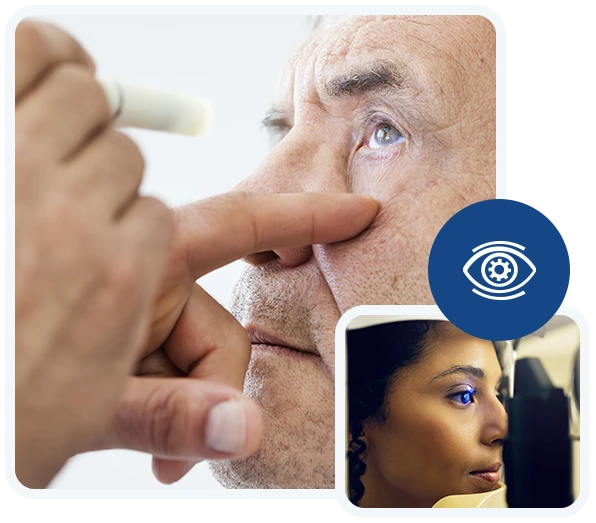Diabetic Eye Exam
Eye Associates of Monmouth
John Ghobrial, MD
Nurturing Eye Health for Diabetics
Along with many other complications, diabetes, Type 1 and Type 2, can make you predisposed to a variety of eye diseases, including cataracts and retinopathy. At Eye Associates of Monmouth, in Colts Neck, New Jersey, John Ghobrial, MD, is an experienced ophthalmologist who provides expert eye care for people with diabetes in Colts Neck and the surrounding communities. In addition to receiving appropriate medical care, it’s just as important for diabetic patients to receive regular eye care from a trained ophthalmologist. For compassionate eye care in a welcoming environment, call to schedule a comprehensive eye exam or book online.

Diabetic Eye Exam Q & A
If you or a family member has diabetes Type 1 or Type 2, there are a group of eye conditions that may affect your vision, and if left untreated, could lead to blindness. This group includes:
- Diabetic retinopathy
- Cataracts
- Glaucoma
- Diabetic macular edema (DME)
Controlling your diabetes by keeping your sugar levels balanced and eating a healthy diet can help prevent or delay vision loss from diabetic eye diseases.
If you have chronically high blood sugar from unmanaged diabetes, it can eventually damage the blood vessels in your retina. When you have diabetic retinopathy, the blood vessels may leak fluid or bleed and cause vision problems, since your retina is the part of your eye that allows you to focus.
In the most advanced stages of diabetic retinopathy, new abnormal blood vessels grow on the surface of your retina to try to replace the damaged blood vessels. This can lead to scarring on your retina, and eventually, your retina may detach from the underlying tissue. If the disease progresses to this stage, you can end up with permanent vision loss.
If you have the early stages of diabetic retinopathy, glaucoma, or cataracts, you may experience blurry vision. Since you have a higher risk of developing these conditions when you have diabetes, some of the first signs of these diseases may be blurred, distorted, or double vision in one or both eyes. Additionally, if you suddenly experience blurry vision, it may be an indication that your blood sugar is either too high or too low.
If you have blurry vision along with other symptoms of unsafe blood sugar levels, see a doctor right away. These symptoms include:
- Sweating
- Rapid heart rate
- Dizziness
- Nausea
- Sudden vision changes
- Eye pain
Dr. Ghobrial is highly skilled at diagnosing the underlying cause of eye diseases for people with diabetes. He customizes a treatment plan for your eye health, as well as recommending ways to keep your diabetes under control so you can have a better quality of life.
If you have diabetes, schedule a comprehensive diabetic eye exam online or by phone, and be sure to discuss any symptoms you’re having during your appointment.

